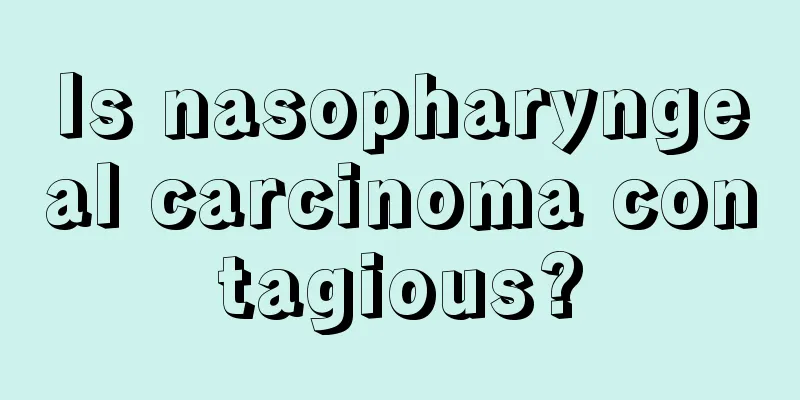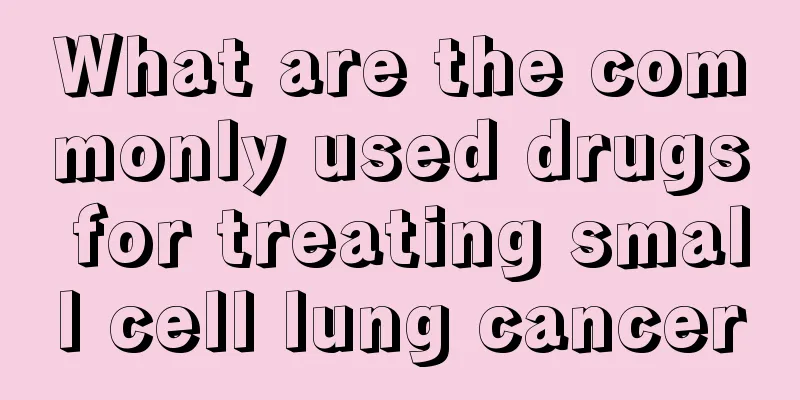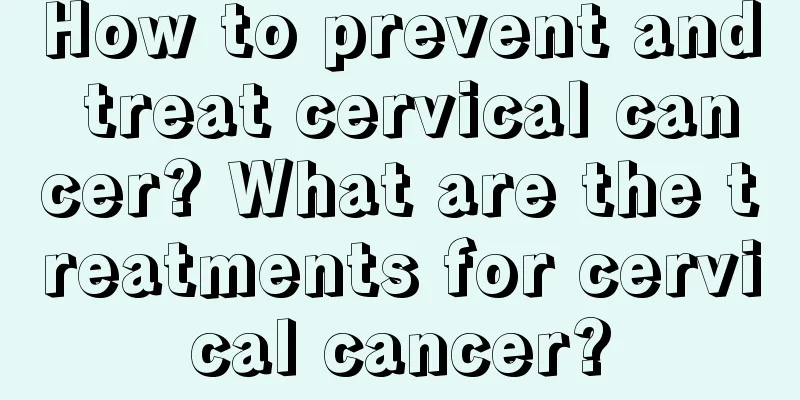Is nasopharyngeal carcinoma contagious?

|
Is nasopharyngeal carcinoma contagious? Nasopharyngeal carcinoma is very common in clinical practice and is a type of malignant tumor. Common clinical symptoms include nasal congestion, blood in mucus, stuffy ears, hearing loss, diplopia and headache. Many people worry that the disease is contagious. So, is nasopharyngeal carcinoma contagious? Let's take a look. Nasopharyngeal carcinoma refers to a malignant tumor that occurs on the top and side walls of the nasopharyngeal cavity. It is extremely harmful, but the disease is not contagious. Nasopharyngeal carcinoma is moderately sensitive to radiotherapy, and radiotherapy is the first choice for nasopharyngeal carcinoma. However, for highly differentiated cancers, advanced disease courses, and recurrences after radiotherapy, surgical resection and chemotherapy are also indispensable means. Nasopharyngeal cancer has obvious family inheritance and racial clustering. The incidence of nasopharyngeal cancer in the yellow race is much higher than that in the white race. Studies have found that even if the yellow race's family often suffers from nasopharyngeal cancer and moves to other places to live, the probability of their offspring suffering from nasopharyngeal cancer will not decrease. Environmental pollution is one of the important factors that induce nasopharyngeal cancer. If you work or live in a heavily polluted environment containing a variety of carcinogenic chemicals for a long time, the probability of developing nasopharyngeal cancer is much higher than that of people living in a healthy environment. Many experts believe that for patients who develop cancer due to environmental pollution, the induction of nasopharyngeal cancer is the result of the combined effects of the environment and genetics. The induction of nasopharyngeal cancer is closely related to the eating habits of the high-risk population. For example, in my country, people in high-risk areas of nasopharyngeal cancer mainly eat salted fish, pickled vegetables, pickled meat and other foods containing nitrite, nitrosamine and various compounds. Studies have shown that these are the main substances that induce nasopharyngeal cancer. Therefore, in life, we should avoid such foods and not eat too much. |
<<: Is bladder cancer contagious?
>>: What can't you eat after ovarian cancer surgery
Recommend
How long is the best time to recolor your eyebrow tattoo
Eyebrow tattooing can be regarded as a relatively...
Dietary health care measures for ovarian tumors
The eating habits of ovarian tumor patients are v...
How to determine if you have mites on your body?
As people's living standards continue to impr...
High thyroglobulin antibodies
Our lifestyles have changed a lot now, and our qu...
The effect of lactobacillus tablets
Many people have had the experience of running to...
Why do people lose their hair?
Everyone experiences hair loss, but some people l...
What is the arm movement in freestyle swimming?
Among various swimming strokes, freestyle is the ...
Experts share the four most effective methods of inducing vomiting
In daily life, vomiting may be necessary for some...
Can't thyroid cancer patients eat seaweed?
Patients with thyroid cancer can eat seaweed. Sea...
Wrist pain and finger numbness
Fingers can be said to be the extremities of our ...
Ginger removes acne marks, teach you 3 tips
The most annoying thing for us is the many pimple...
Don't be careless if there are white spots on your nails, it may be a disease
Generally speaking, the nails of normal and healt...
Can I have sex after getting rabies vaccine
Generally speaking, vaccination will not affect n...
There are several types of prostate cancer
Prostate cancer is a common cancer among all canc...
How come a sutured wound doesn't leave a scar?
Bumps, collisions, and falls often happen in dail...









